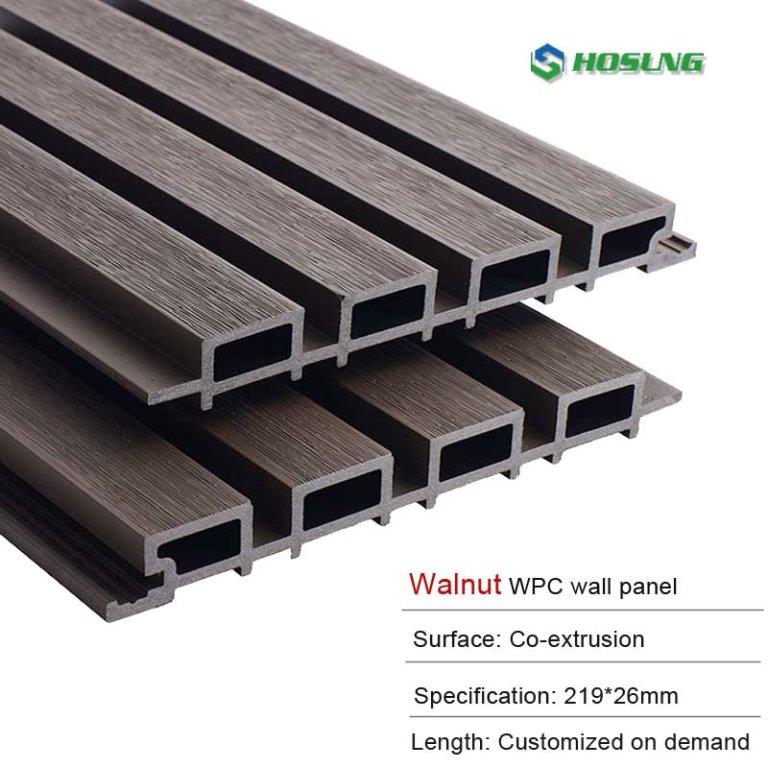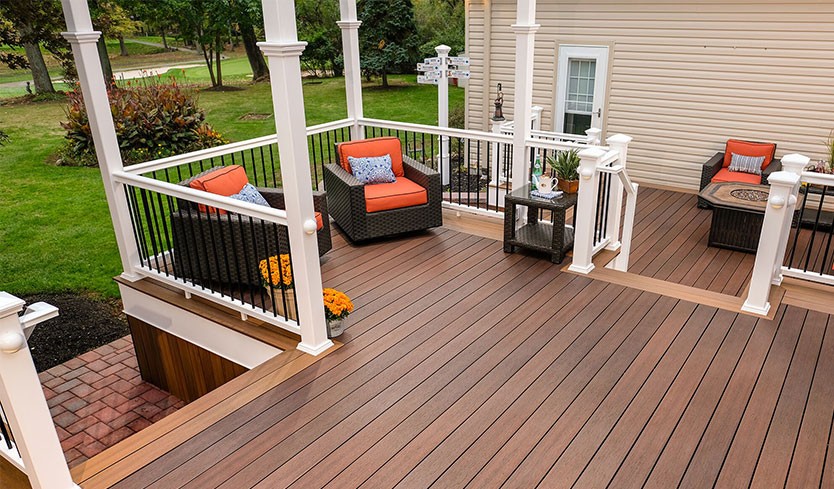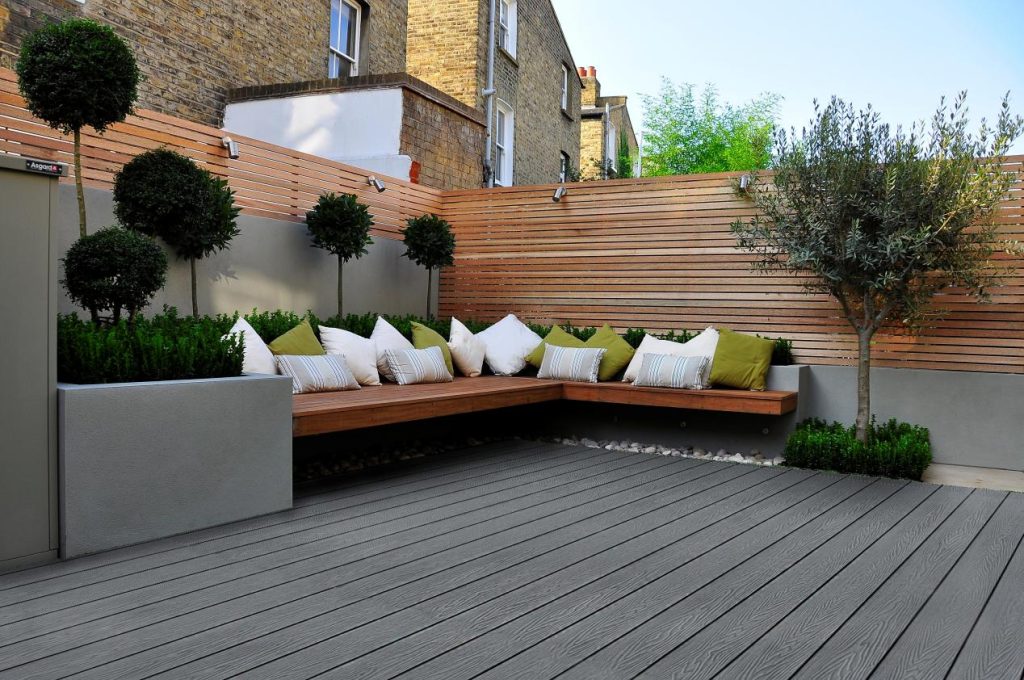The world of interior and exterior wall cladding has evolved significantly over the past decade, with WPC wood slat panel solutions becoming one of the most popular choices among homeowners, architects, and interior designers. Combining the natural beauty of wood with the durability of composite materials, these panels offer an ideal balance of aesthetics, performance, and sustainability.
Table of Contents
In this buyer’s guide, we will explore what WPC wood slat panels are, how they are made, their environmental advantages, key applications, installation methods, maintenance tips, and how they compare to other options on the market. Whether you are considering them for a residential project, a commercial space, or an outdoor feature wall, this guide will help you make an informed purchasing decision.
What Is a WPC Wood Slat Panel?
WPC stands for Wood-Plastic Composite, a material created by blending natural wood fibers with thermoplastics, typically polyethylene or polypropylene. The WPC wood slat panel takes this material and shapes it into long, narrow slats arranged in a regular pattern, which are then mounted on a supporting frame or backing. The result is a product that retains the warmth and texture of wood while benefiting from the resilience of modern composites.
Key Components:
Wood fibers – Often sourced from recycled wood or sawdust, reducing waste.
Plastic polymers – Provide weather resistance and strength; sometimes recycled as well.
Additives – Such as UV stabilizers, pigments, and anti-fungal agents for longer lifespan.
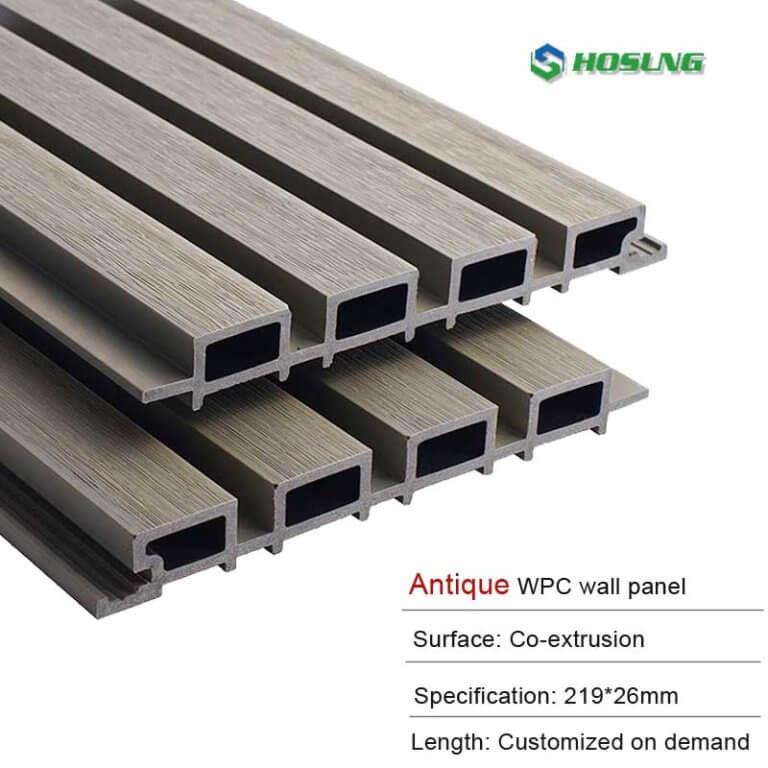
Manufacturing Process
The manufacturing process of a WPC wood slat panel is an important factor in its environmental impact and performance characteristics.
Raw Material Preparation – Wood fibers and recycled plastics are dried and cleaned to remove impurities.
Blending – Materials are mixed with color pigments and performance additives.
Extrusion – The blended compound is extruded through molds to create slats with precise dimensions.
Cooling & Cutting – Extruded slats are cooled, cut to length, and inspected for quality.
Assembly – Slats are mounted onto an aluminum or composite backing frame to form panels.
Surface Finishing – Panels can be brushed, sanded, or embossed to create different wood-like textures.
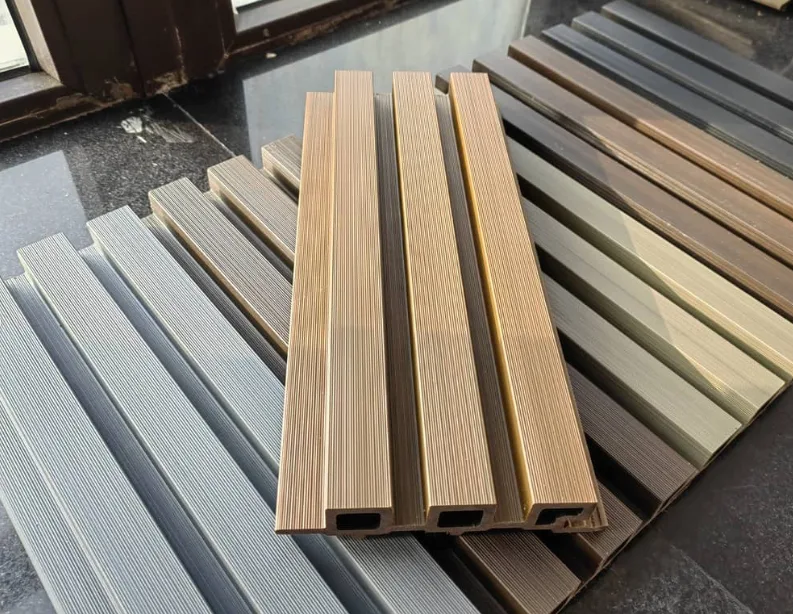
Types of WPC Wood Slat Panels
While all WPC wood slat panels share the same core composite material, they can be categorized by design style, surface finish, and intended use. Understanding these variations helps you choose the most suitable type for your project.
Surface Finish
Brushed or Embossed – Imitates natural wood grain for a warm, authentic look.
Smooth – Sleek, modern appearance, ideal for minimalist interiors.
Slat Size and Spacing
Narrow slats with tight spacing for a refined, detailed aesthetic.
Wide slats with larger gaps for a bold, industrial style.
Application-Specific Designs
Interior Panels – Often lighter in weight, optimized for decorative use.
Exterior Panels – Enhanced UV resistance, thicker profiles, and better waterproofing.
| Type | Surface Finish | Slat Width | Common Uses | Key Benefit |
|---|---|---|---|---|
| Brushed Interior | Brushed wood grain | 20–30 mm | Living rooms, offices | Warm, natural look |
| Smooth Interior | Smooth matte/gloss | 20–50 mm | Modern interiors | Sleek, contemporary style |
| Brushed Exterior | Embossed, UV-treated | 25–35 mm | Outdoor façades, fences | Weather-resistant realism |
| Wide Slat Exterior | Smooth or brushed | 40–60 mm | Commercial exteriors | Bold visual impact |
By identifying your desired look, environment, and performance needs, you can narrow down the right WPC wood slat panel type to match your project’s requirements.
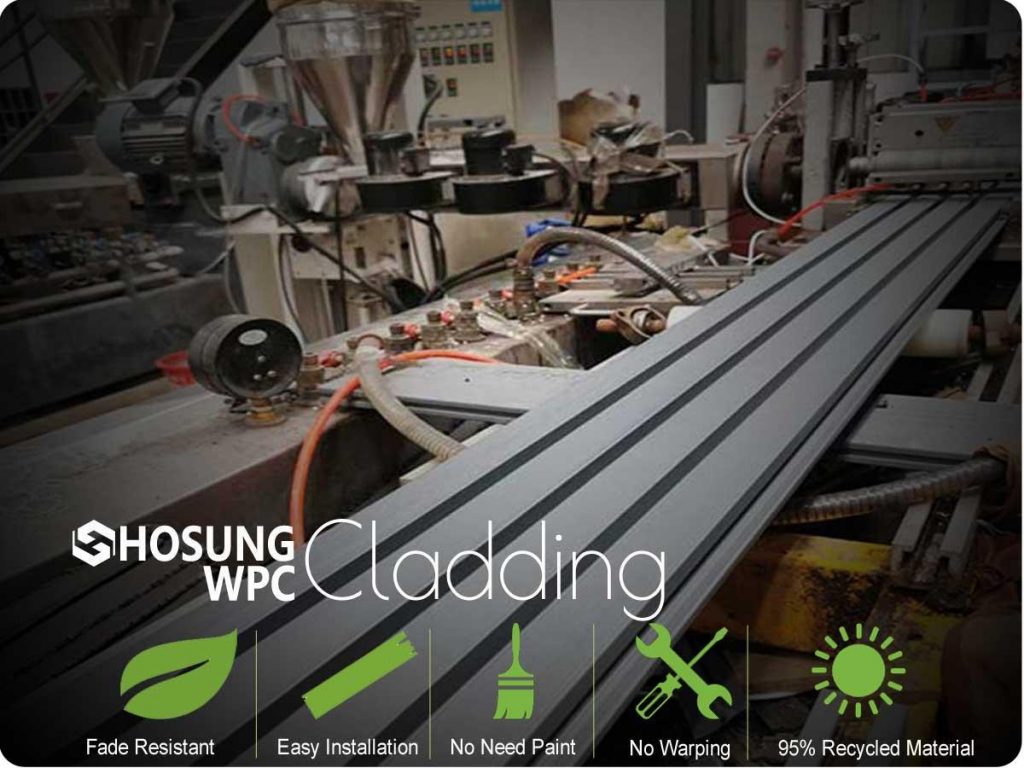
Applications
6.1 Residential Interiors
Feature walls in living rooms or bedrooms – Adding depth, warmth, and texture, WPC panels create a luxurious focal point that blends with various interior styles.
Acoustic paneling in media rooms – The slatted design can help diffuse sound, improving audio quality in home theaters or music rooms.
Decorative backsplashes – Resistant to moisture and easy to clean, making them a modern alternative to tile in kitchens or bathrooms.
6.2 Commercial Spaces
Reception desk backdrops – Offer a professional yet inviting first impression for offices, hotels, and clinics.
Office meeting room partitions – Lightweight, stylish, and functional, helping create semi-private zones while maintaining an open feel.
Retail store display walls – Durable enough to handle frequent fixture changes without visible wear.
6.3 Exterior Applications
Garden fencing and boundary walls – Weather-resistant panels maintain their appearance with minimal maintenance.
Building façades – Enhance curb appeal while protecting structural walls from UV and rain.
Outdoor seating area enclosures – Provide privacy and wind protection while complementing landscaping.
The WPC wood slat wall panel option is particularly suited for high-traffic or weather-exposed areas, thanks to its water and UV resistance. Its composite nature ensures it won’t warp, rot, or fade as quickly as natural timber, making it an eco-conscious choice for both modern architecture and traditional design settings. Furthermore, because the panels are available in various finishes and colors, designers can seamlessly integrate them into themed projects—whether it’s a rustic café patio, a minimalist office lobby, or a contemporary home terrace. This adaptability allows WPC panels to function not only as a decorative element but also as a structural enhancement, adding value to any property.
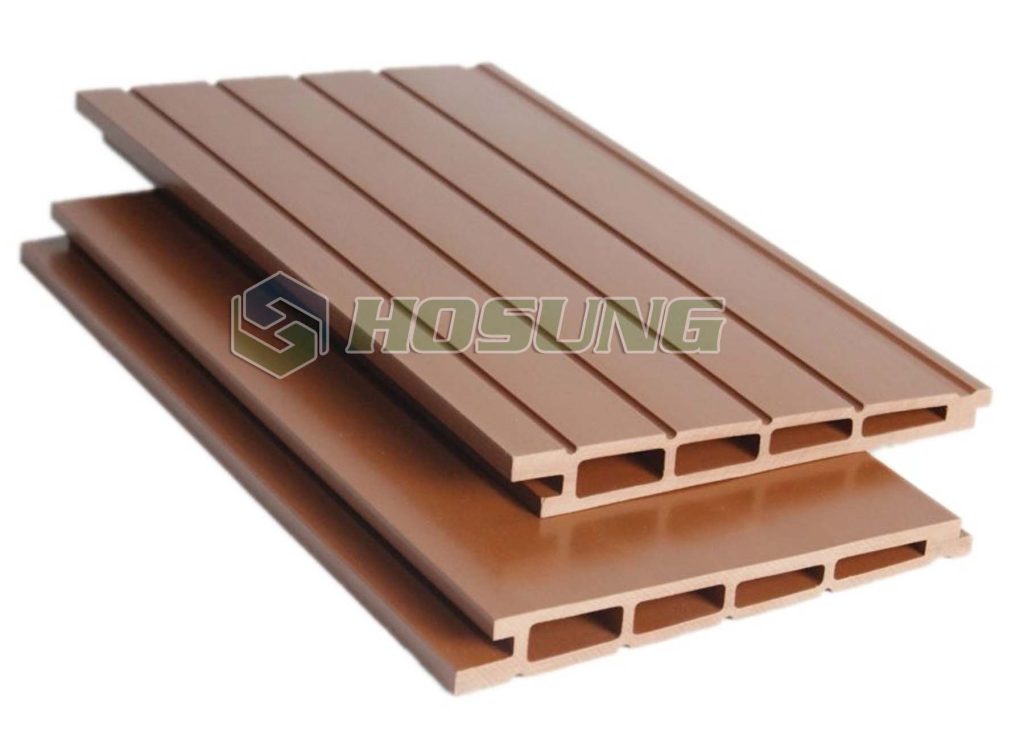
Installation Guide
Installing WPC wood slat panels is generally straightforward, making them attractive to both DIY enthusiasts and professionals.
Tools Needed:
Measuring tape
Level
Drill and screws
Cutting saw (for adjustments)
Safety gear
Steps:
Prepare the Surface – Ensure the wall or frame is level and free of moisture.
Measure and Plan – Mark fixing points to align slats properly.
Attach the Frame – Secure the mounting battens or frame to the surface.
Install the Panels – Fix panels to the frame using screws or hidden fasteners.
Finishing Touches – Seal gaps with trim pieces for a polished look.
Pro Tip: Allow space for thermal expansion, especially in exterior installations.
Maintenance and Care
One of the standout benefits of WPC slat panel products is their low-maintenance nature.
Cleaning – Use mild soap and water with a soft brush to remove dust or dirt.
Stain Removal – For stubborn marks, a diluted household cleaner works well.
Avoid Harsh Chemicals – Strong solvents may damage surface finishes.
Inspection – Check annually for loose fittings or accumulated debris.
Unlike wood, WPC panels do not require annual staining or sealing, saving time and money.
Comparison with Alternatives
| Feature | WPC Wood Slat Panel | Solid Wood Panel | MDF/Engineered Wood |
|---|---|---|---|
| Durability | High, weather-resistant | Prone to warping, rotting | Medium, vulnerable to moisture |
| Maintenance | Low | High | Medium |
| Eco Impact | Uses recycled materials | May require deforestation | Often uses formaldehyde-based adhesives |
| Cost | Moderate | Variable | Low to moderate |
| Appearance | Wood-like, consistent | Natural variation | Painted/laminated finish |
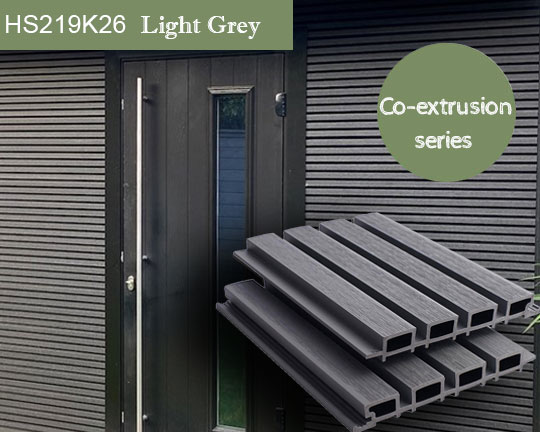
Buying Considerations
When shopping for WPC wood slat panels, consider the following:
Material Composition – Higher recycled content is better for sustainability.
UV Protection – Essential for outdoor use to prevent fading.
Fire Rating – Important for certain building codes.
Warranty – Look for at least 10–15 years of coverage.
Installation Method – Check if the product comes with a compatible mounting system.
Conclusion
WPC wood slat panels represent a perfect fusion of style, functionality, and environmental responsibility. By combining recycled materials with innovative design, they offer a long-lasting and attractive alternative to traditional wood cladding. Whether you’re updating an interior wall, designing an exterior façade, or seeking an acoustic solution for a workspace, WPC panels deliver consistent performance with minimal upkeep.
By understanding the composition, benefits, and applications of these panels, you can make a confident, informed purchasing decision that not only enhances your space but also supports a more sustainable future. Want to get the wholesale price of these WPC wood slat panels? Welcome to contact Hosung WPC!

